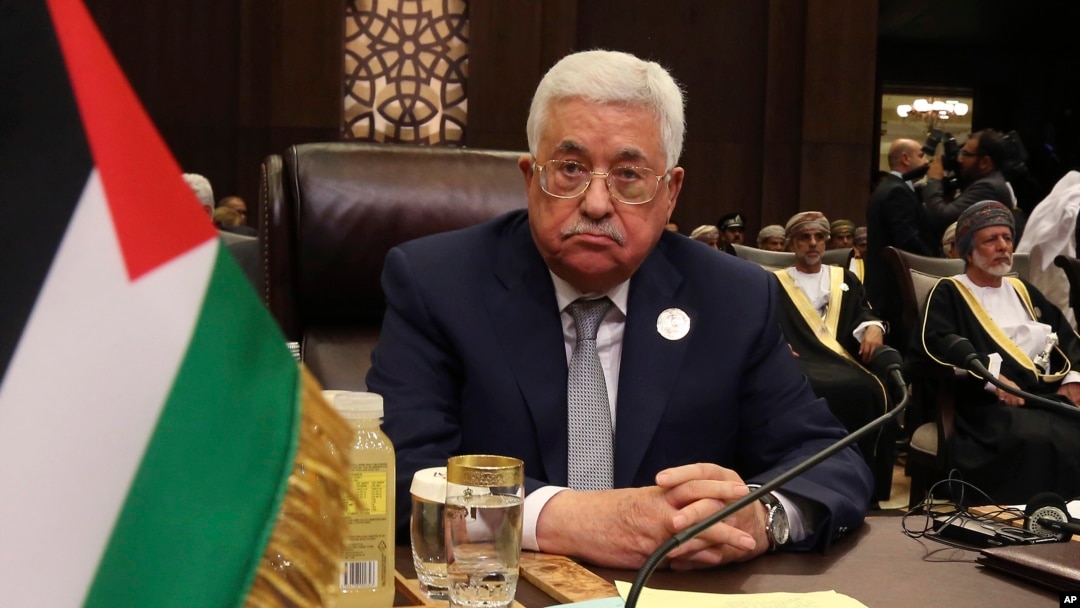Palestinian President Mahmoud Abbas has clamped down on social media and news websites, the main outlets for debate and dissent in the West Bank, with a vaguely worded decree that critics say allows his government to jail anyone on charges of harming “national unity” or the “social fabric.”
Rights activists say the edict, issued without prior public debate last month, is perhaps the most significant step yet by Abbas’ government to restrict freedom of expression in the autonomous Palestinian enclaves of the Israeli-occupied West Bank.
Thirty websites blocked
A Palestinian prosecutor denied the decree is being used to stifle dissent and insisted that a new law on electronic crimes was needed to close legal loopholes that in the past allowed offenders, such as hackers, to go unpunished.
However, the government has blocked 30 websites in the past month, according to the Palestinian Center for Development and Media Freedoms, or Mada.
Most of the sites were affiliated with Abbas’s two main rivals, a former aide-turned-foe, Mohammed Dahlan, and the Islamic militant group Hamas, Mada said. A few of the blocked sites had supported the extremist Islamic State group in Iraq and Syria.
Journalists detained
Five journalists working for news outlets linked to Hamas were detained this week and charged with violating the new law, according the lawyer of one of those arrested and an official in the association of Palestinian journalists.
Separately, four other journalists were called for questioning about social media posts critical of government policy.
One of those summoned, photo journalist Fadi Arouri, who works for the Chinese news agency Xinhua, said he was shown his Facebook posts and was told that the authorities are concerned “these expressions could lead to disorder in the society.”
Ammar Dweik, head of the government-appointed Palestinian Independent Commission for Human Rights, said the new law is “one of the worst” since the Palestinian autonomy government was established in 1994.
It’s “a big setback to the freedoms in the West Bank,” he said, citing the vague definition of the purported crimes, the wide authority given to the security forces, the large-scale blocking of news websites and the harsh punishments.
New challenges to Abbas' rule
Rights groups have repeatedly accused Abbas and his predecessor, Yasser Arafat, of restricting freedoms and engaging in human rights violations, such as arbitrary arrests of political opponents, mistreatment in detention and cracking down on peaceful protests.
The new decree stipulates prison terms ranging from one year to life for those who use digital means for a range of all-encompassing offenses. The list includes endangering the safety of the state or the public order as well as harming national unity or social peace.
Abbas, 82, issued the decree at a time when he is facing new domestic challenges to his rule.
Dahlan and Hamas have overcome their old rivalry to team up against Abbas with an emerging power-sharing deal in Gaza, the territory Abbas’ Fatah movement lost to Hamas in 2007.
Polls routinely show that two-thirds of Palestinians want Abbas to resign. He was elected to five years in 2005, but stayed on, arguing that political disagreement with Hamas prevented new elections. With parliament paralyzed as a result of the political split, Abbas has ruled by decree.
Abbas also failed to deliver on his central promise of setting up a Palestinian state in talks with Israel.
Gaps widened since Israel’s hard-line leader Benjamin Netanyahu came to power in 2009, and an early Trump administration promise to revive long-dormant negotiations appears to have fizzled.


